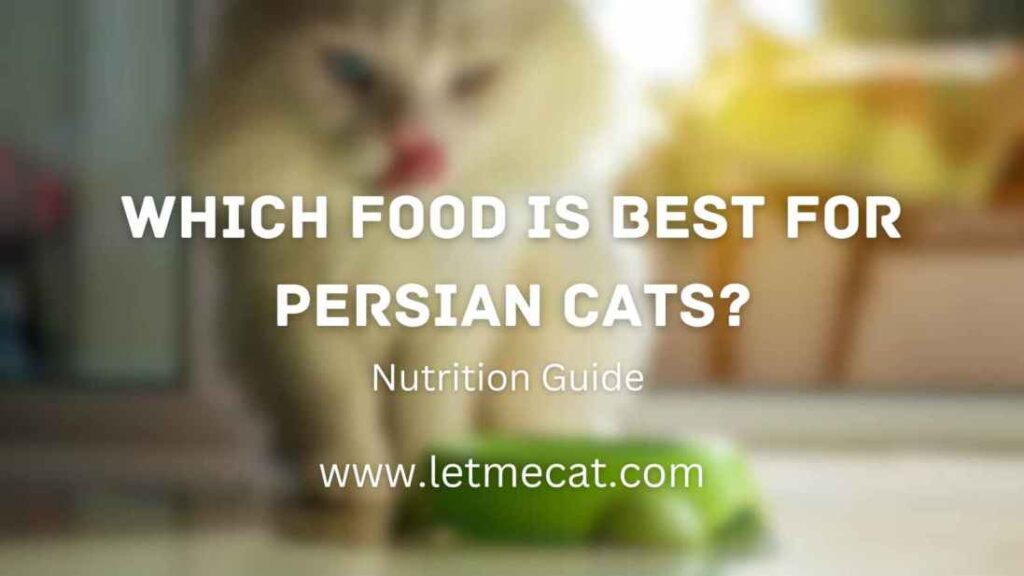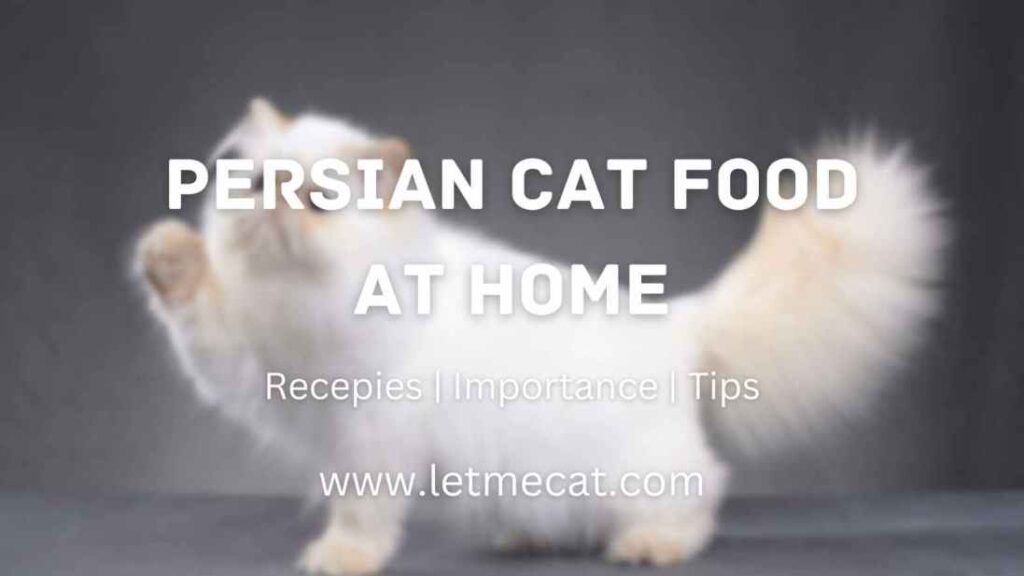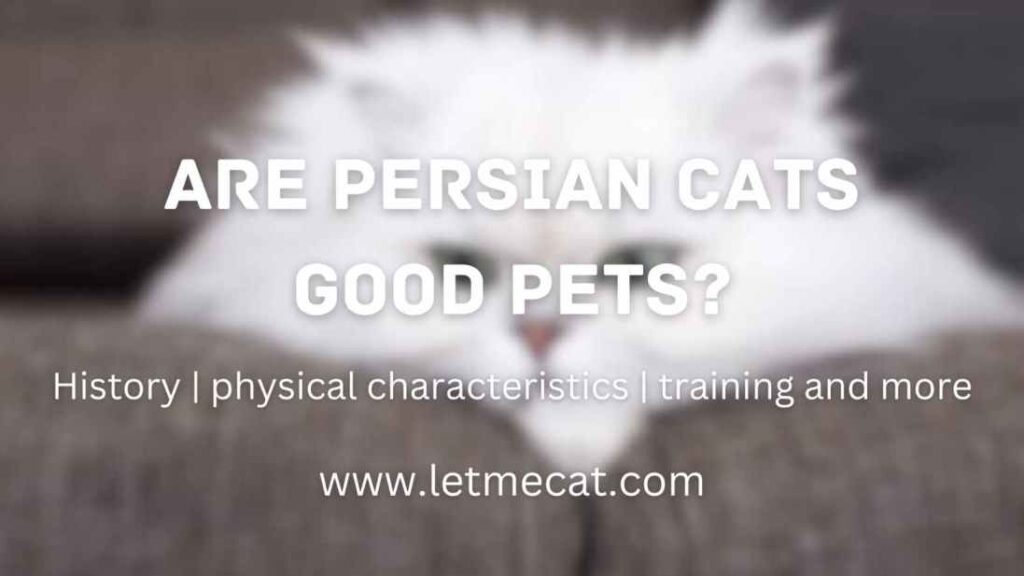In this article, we will explore the best food options for Persian cats, taking into account their history, dietary requirements, and specific considerations.
1. Understanding Persian Cats
1.1 History and Origin
Persian cats have a rich history that dates back to ancient times. Originating in Persia (modern-day Iran), they were highly esteemed and treasured for their luxurious coats and regal appearance. Today, they are one of the most popular cat breeds worldwide.
1.2 Physical Characteristics
Persian cats are known for their distinctive features, such as long, flowing coats, flat faces, and expressive eyes. These physical characteristics require extra care, including proper nutrition, to maintain their health and beauty.
1.3 Unique Nutritional Needs
Due to their specific body structure and genetic makeup, Persian cats have distinct nutritional requirements. Their dietary needs differ from other cat breeds, and meeting these needs is essential for their overall well-being.
2. Importance of Choosing the Right Food
Selecting the right food for your Persian cat is crucial for several reasons. A well-balanced and appropriate diet contributes to their overall health, promotes a shiny coat, supports their immune system, and minimizes the risk of certain health issues.
3. Nutritional Requirements for Persian Cats
3.1 Protein
Protein is a vital component of a Persian cat’s diet. It helps in building and repairing tissues, maintaining a healthy coat, and supporting the immune system. Look for cat foods that contain high-quality animal-based proteins, such as chicken or fish.
3.2 Fat
Fat is a concentrated source of energy and essential fatty acids, which are crucial for a Persian cat’s skin and coat health. Opt for cat foods with moderate fat content and include healthy fats like omega-3 fatty acids.
3.3 Carbohydrates
While cats are primarily carnivorous, they still require a small amount of carbohydrates for energy. Choose cat foods that contain easily digestible carbohydrates, such as whole grains or vegetables.
3.4 Vitamins and Minerals
Vitamins and minerals play a vital role in maintaining a Persian cat’s overall health. Ensure that their diet includes essential vitamins like A, D, E, and minerals like calcium and phosphorus. Consult with your veterinarian for specific recommendations.
4. Wet Food vs. Dry Food
Both wet and dry cat foods have their advantages. Wet food provides hydration, is more palatable, and can be beneficial for cats with urinary tract issues. Dry food helps promote dental health and can be more convenient. A combination of both types may be a suitable choice for Persian cats.
5. Avoiding Harmful Ingredients
5.1 Artificial Additives
Artificial additives, such as preservatives, colors, and flavors, should be avoided in your Persian cat’s food. Opt for natural cat foods that contain minimal artificial ingredients.
5.2 Allergens
Some cats may have food sensitivities or allergies. Monitor your Persian cat for any adverse reactions to certain ingredients and consult your veterinarian if necessary.
5.3 Toxic Foods for Cats
Certain human foods are toxic to cats and should never be included in their diet. These include chocolate, onions, garlic, grapes, and raisins. Be cautious and keep these foods out of your cat’s reach.
6. The Role of Water
Water is vital for your Persian cat’s overall health. Ensure fresh and clean water is available at all times. Cats can be finicky about drinking water, so consider providing a cat fountain or moistening their food to increase their water intake.
7. Feeding Schedule and Portion Control
Establish a regular feeding schedule for your Persian cat and follow the portion recommendations provided on the cat food packaging. Avoid overfeeding, as obesity can lead to various health issues.
8. Introducing New Foods
When introducing new foods to your Persian cat, do it gradually to avoid digestive upset. Mix small amounts of the new food with their current diet, gradually increasing the proportion over several days.
9. Homemade vs. Commercial Diets
Both homemade and commercial diets can be suitable for Persian cats. However, homemade diets require careful attention to ensure they meet all the nutritional requirements. If opting for a homemade diet, consult with a veterinary nutritionist to create a balanced meal plan.
10. Special Dietary Considerations
10.1 Senior Persian Cats
As Persian cats age, their nutritional needs may change. Consult with your veterinarian to ensure their diet is adjusted to meet their specific requirements as they enter their senior years.
10.2 Persian Cats with Health Issues
Persian cats may be prone to certain health issues, such as urinary tract problems or allergies. In such cases, a specialized diet recommended by your veterinarian may be necessary.
11. Grooming and Diet
Proper grooming is essential for Persian cats, and a good diet can contribute to their coat’s health. A well-balanced diet provides the necessary nutrients for a shiny, lustrous coat, reducing the risk of matting and skin issues.
12. Signs of a Well-Balanced Diet
A well-balanced diet positively affects your Persian cat’s overall health. Look for signs such as a healthy coat, clear eyes, good energy levels, regular bowel movements, and a stable weight.
13. Choosing a High-Quality Cat Food
Selecting high-quality cat food is crucial for your Persian cat’s well-being. Look for reputable brands that use quality ingredients and have undergone rigorous testing. Reading product labels and understanding the ingredients is essential.
Conclusion
In conclusion, providing the best food for your Persian cat is vital for their health and happiness. Understanding their unique nutritional needs, choosing high-quality cat food, and considering special dietary considerations will ensure they thrive. Consult with your veterinarian for personalized recommendations.
Thank you for reading it.




Pingback: Homemade Persian Cat Food - Recipe Ideas, Tips - Let Me Cat
Pingback: Persian Cat Food Routine - Top Rated Guide - Let Me Cat